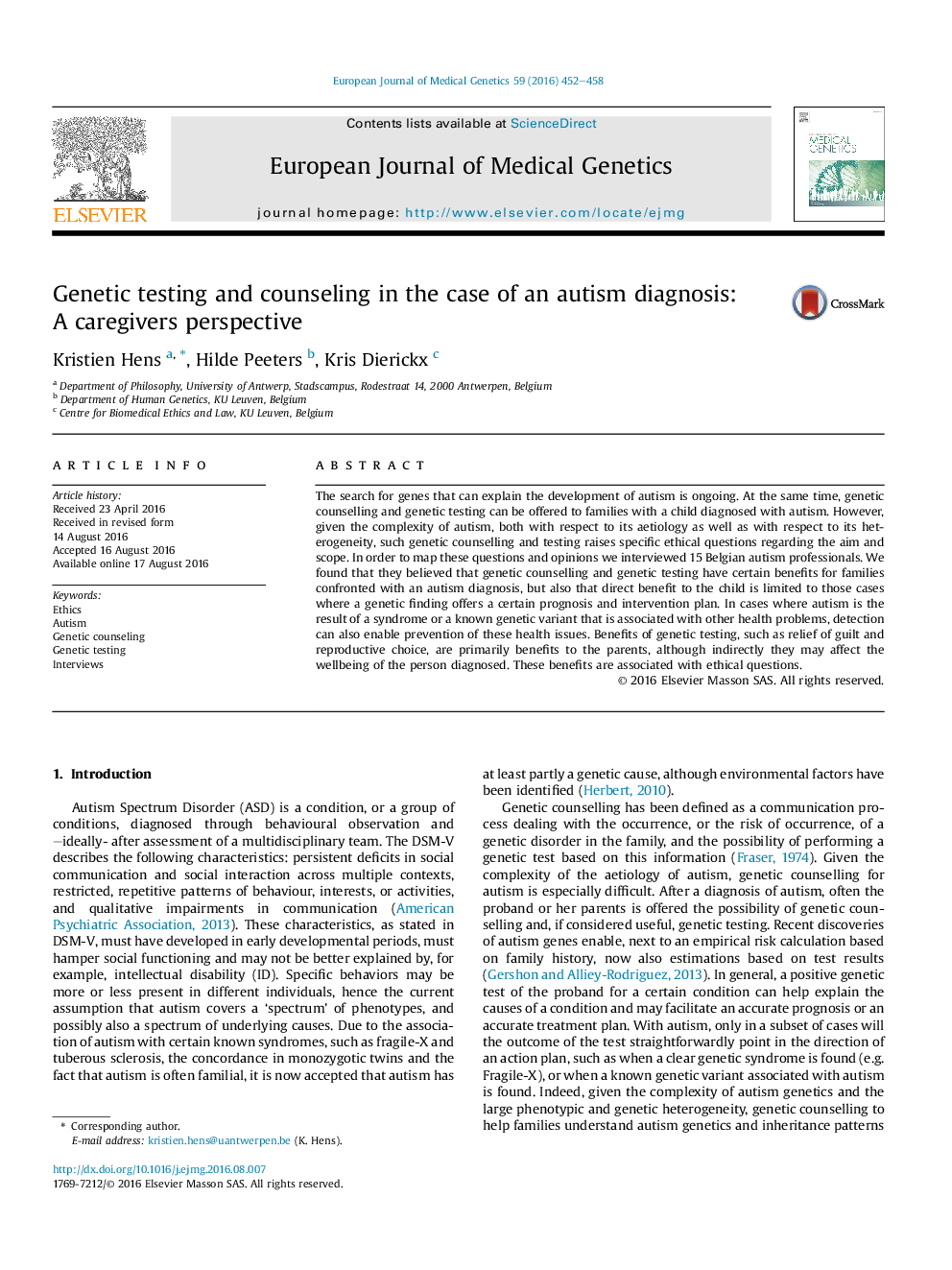| کد مقاله | کد نشریه | سال انتشار | مقاله انگلیسی | نسخه تمام متن |
|---|---|---|---|---|
| 2813651 | 1569466 | 2016 | 7 صفحه PDF | دانلود رایگان |
The search for genes that can explain the development of autism is ongoing. At the same time, genetic counselling and genetic testing can be offered to families with a child diagnosed with autism. However, given the complexity of autism, both with respect to its aetiology as well as with respect to its heterogeneity, such genetic counselling and testing raises specific ethical questions regarding the aim and scope. In order to map these questions and opinions we interviewed 15 Belgian autism professionals. We found that they believed that genetic counselling and genetic testing have certain benefits for families confronted with an autism diagnosis, but also that direct benefit to the child is limited to those cases where a genetic finding offers a certain prognosis and intervention plan. In cases where autism is the result of a syndrome or a known genetic variant that is associated with other health problems, detection can also enable prevention of these health issues. Benefits of genetic testing, such as relief of guilt and reproductive choice, are primarily benefits to the parents, although indirectly they may affect the wellbeing of the person diagnosed. These benefits are associated with ethical questions.
Journal: European Journal of Medical Genetics - Volume 59, Issue 9, September 2016, Pages 452–458
